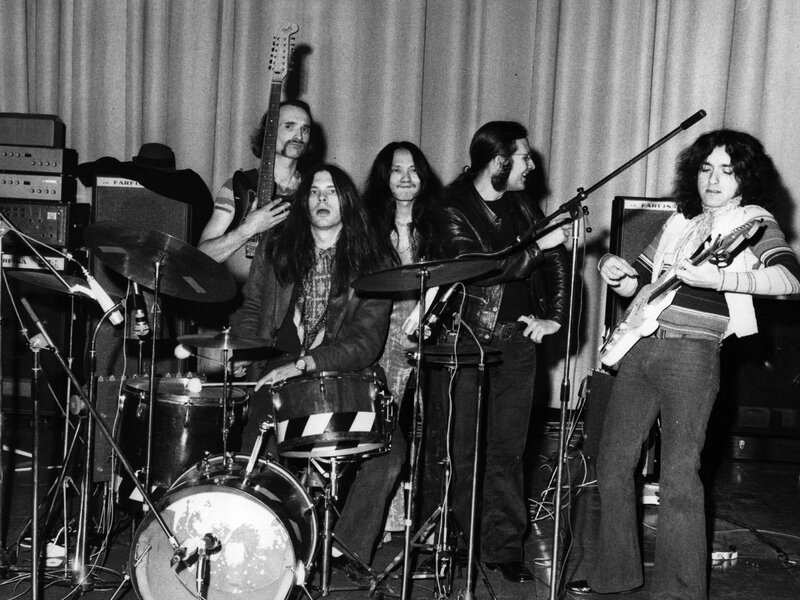
Krautrock: How 1970s Bands Helped Postwar Germany Move Beyond Its Dark Past
In the wake of World War II, Germany faced a collective reckoning with its history, identity, and role in the world. The 1970s became a pivotal period for the nation, with cultural shifts that helped its people process trauma, seek new forms of expression, and move forward. Among these changes, Krautrock emerged as an avant-garde music movement, shaping not only the soundscape of Germany but also its social and cultural consciousness. Krautrock was born from a generation of young German musicians who, in the aftermath of the war, sought to redefine German identity through art, sound, and unconventional ideas.
The Birth of Krautrock: Sounding Out a New Identity
Krautrock, a term coined by British music journalists, was both a genre and an ethos. Far removed from the mainstream rock and pop music coming out of the UK and the US, Krautrock bands used music to explore experimental sounds, pushing past traditional boundaries of rhythm and melody. This genre was characterized by electronic elements, hypnotic rhythms, repetitive beats, and minimalist structures, all blended to create a trance-like effect that felt unprecedented. Bands such as Can, Kraftwerk, Neu!, Tangerine Dream, and Faust spearheaded the movement, rejecting Anglo-American styles and instead creating something distinctly German, yet universal.
Emerging during the tumultuous 1960s and 1970s, Krautrock was not just a response to musical trends but a search for self-understanding. Many of the musicians were born during or just after World War II, growing up with the knowledge of their country’s recent dark past. Their music, therefore, often dealt with themes of reconstruction, alienation, and reinvention. Krautrock musicians deliberately avoided mainstream appeal, seeing their work as an avant-garde expression of something deeper: the possibility of a new German identity unburdened by guilt, yet aware of its history.
Breaking from Tradition: The Krautrock Sound
The Krautrock sound was as much about innovation as it was about defiance. Bands experimented with synthesizers, tape loops, and unconventional instrumentation, creating sounds that were atmospheric, experimental, and often challenging. The beats were mechanical, the melodies sparse, the lyrics often cryptic or nonexistent. Krautrock bands avoided the blues-inspired styles that were dominating rock music at the time, instead exploring minimalist compositions, jazz, electronic music, and even classical influences.
The music of Can, for example, was a swirling blend of rock, jazz, and the avant-garde, driven by relentless rhythm sections and bizarre vocal deliveries. Kraftwerk, perhaps the most internationally famous Krautrock band, pioneered electronic music with their robotic beats and futuristic themes, laying the groundwork for later genres such as techno, synth-pop, and electronic music. Tangerine Dream crafted ambient soundscapes that became the blueprint for New Age music. Neu! embraced a “motorik” beat, a hypnotic, driving rhythm that embodied the repetitive, forward-moving pulse of modern Germany.
Krautrock’s sound was rooted in rejection—rejection of the past, of conformity, and of the norms in both music and society. By moving away from the conventions of traditional Western music, Krautrock bands created a unique sound that felt like a release from Germany’s turbulent history.
Cultural and Political Significance
The political undertones of Krautrock were subtle but powerful. Germany was still divided between East and West, with many young Germans feeling alienated from the older generation, who had either directly or indirectly been part of the Nazi regime. The Krautrock scene became a space for the youth to explore their discomfort and their disconnection from both the past and the politics of the time.
In its defiance of mainstream, commercially oriented music, Krautrock also echoed the sentiments of the student movement and counterculture of the era. Young Germans were questioning authority, pushing for a redefinition of German values, and seeking autonomy from Western influences. Krautrock bands stood outside of commercial pressures, often producing music independently or on small labels. This allowed them to experiment freely and created a space for other German artists to express dissent and challenge societal norms.
Moreover, Krautrock resonated with the idea of the “soundscape of reconstruction,” capturing the industrial and mechanical rhythms of postwar Germany, where cities were being rebuilt and a new, unified culture was slowly taking shape. The music itself became a metaphor for moving forward—a repetitive, forward-marching beat symbolizing a new direction away from the ghosts of Germany’s past.
The Lasting Impact of Krautrock
Krautrock’s influence on music is far-reaching. Kraftwerk’s pioneering work in electronic music heavily influenced the development of techno, house, and other electronic genres in the 1980s and 1990s. Neu!’s motorik beat inspired punk, post-punk, and indie bands. Can’s experimentation opened doors for musicians across multiple genres, from David Bowie to Radiohead, who have cited Krautrock as a profound influence on their work.
But beyond its impact on music, Krautrock helped Germany heal. It created a path for young Germans to engage with their cultural identity, channel their frustrations, and reimagine what Germany could be. Krautrock was a transformative force, one that gave German youth a sense of agency and an outlet to express ideas and experiences that words could not fully capture.
Conclusion
Krautrock was more than just a genre of music—it was a movement that gave voice to a generation’s search for a new identity, one that was free from the shadows of Germany’s past but still aware of its implications. By pushing against conventional structures and embracing the freedom of artistic exploration, Krautrock helped shape a new German narrative, one grounded in innovation and forward thinking.
As the echoes of Krautrock continue to reverberate through modern music, its legacy reminds us that art can be a powerful medium for societal change. In reimagining sound, Krautrock reimagined identity, setting the stage for a new Germany to emerge from the ashes of the old.







